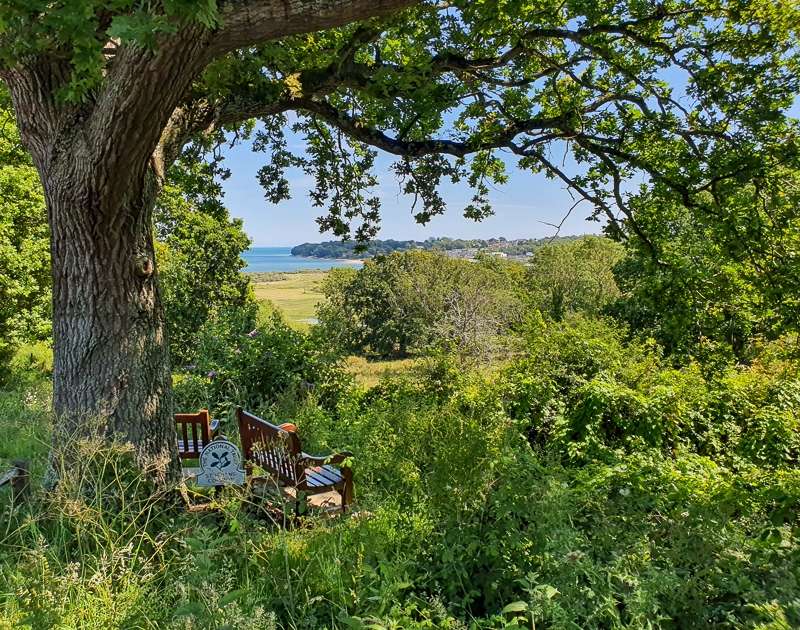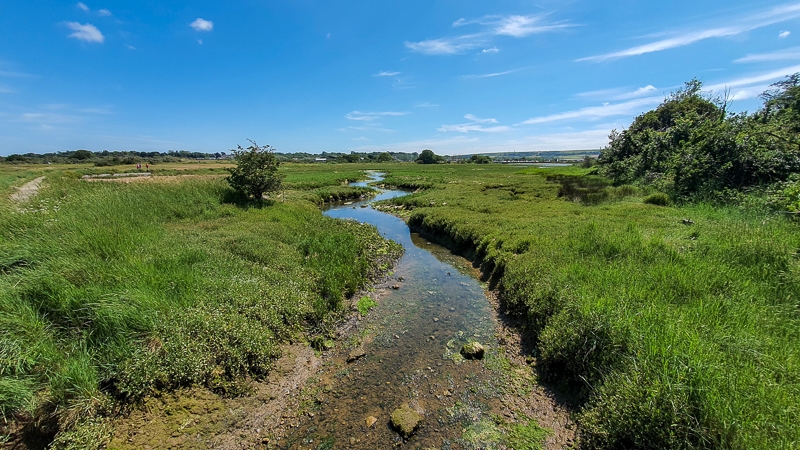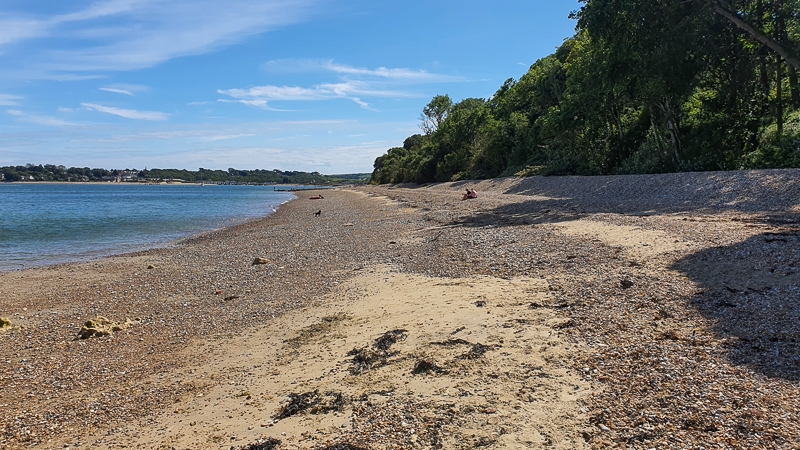A declining population: is it a problem?

For decades, we worried that the population of humans would continue to grow indefinitely, eventually maxing out Earth's resources, resulting in widespread poverty and famine. This fear led to the likes of China's one child policy. Now, scientists think our population will peak this century and then plateau, or even decline.
We're living longer, but this is more than balanced out by a declining fertility rate in most countries. National Geographic reports that in 1950, the global fertility rate was 5 births per woman; by 2021 it had dropped to 2.3.
In North America, much of South America, Europe, China, India, Iran, Thailand, Vietnam, Malaysia, New Zealand and Australia the fertility rate is below the 2.1 replacement rate, meaning that (aside from the effects of immigration, which have boosted the US population in particular) the population is decreasing.
Countries in Sub-Saharan Africa have higher fertility rates - often four or more children per woman, and their populations will continue to rise. Overall, scientists predict that the global fertility rate will decline to 2.1 - the replacement rate - by 2050.
The panic associated with the risk of a "population bomb" has been neatly replaced with panic over an aging population.
There's something in this, of course. We need more health and personal care as we get older, and the cost of such care is usually borne by the working population at the time. If the retired population vastly outnumbers the working population, we could end up without enough money to care for the retired population and lots of over-worked, over-taxed youngsters trying to care for several older relatives.
But some of the panic is wrapped up in expectations of continual economic growth; how can countries continue to increase GDP when their working population is shrinking? This part of the panic is something I think we can leave behind, at least when it relates to economic growth for its own sake.
David Attenborough did a stellar job of summarising the arguments for ditching GDP as the primary measure of progress in A Life on Our Planet. It just doesn't mean much; it doesn't mean people's lives are improving or that we're caring for the natural world. Countries like New Zealand have already dropped GDP as their focus.
So there's a real problem to solve, funding retirement and elderly care, but what else is going on?
I expect some of the panic is a result of people being resistant to change. A declining population could bring widespread social change, disrupting the established order.
The reasons why the fertility rate is dropping are largely extremely positive: improved access to education for women, better employment opportunities, wider access to contraception and changing public attitudes that offer women more freedom to make their own life choices.
To present declining fertility rates as a catastrophic problem without stopping to appreciate the reasons for the decline is to disregard the importance of improvements to women's rights and autonomy.

I'm at an age now where many of my friends are having kids. I love their kids, but this coincides with people asking me to have kids.
In Four Thousand Weeks, Oliver Burkeman explores how we live with the knowledge that we'll only live for around four thousand weeks, and how we choose how to spend that limited time. He explains (as many have before him) that making life-altering decisions is hard when you know you've only got a short life to live, and it makes us feel more secure in those decisions if people around us are doing the same thing.
It's why when people have kids they start pressuring those around them to have kids - the same goes for getting married, settling down, moving abroad. But nothing alters the course of your life, and how you'll spend the rest of it, more than having kids.
All this pressure forces even strong-minded people like me to spend more time than they'd like to considering the reasons for and against having kids.
Abigail Beall experienced the same thing, and wrote about it in the New Scientist. She looked at whether science could help her decide. Here's what she found.
Having a child has a huge carbon impact - having one child means you emit, on average, an extra 58.6 tonnes of carbon per year, eclipsing what you'd save by not driving a car (2.4 tonnes). This is hardly a surprise. Neither is the financial impact of having kids, which is predictably devastating.
What did come as a surprise, or perhaps a validation, is what Beall calls the happiness penalty. The reason I say this is a validation is because, to me, having a kid just doesn't look like a good time, but the reason I'm surprised that this is reflected in research is because of the crushing social pressure to only say good things about the experience of raising children.
From the studies emerges a clear consensus: in wealthier, industrialised countries, there is no general improvement in happiness when you have kids. On the contrary, most parents experience a happiness penalty; they're less happy after they have children.
There are lots of reasons for this: lack of sleep, stress, financial cost, less time for themselves, relationship strain, less time spent on activities that they used to enjoy, the extra work associated with raising a child, the physical effects of childbirth (which are often serious and long-lasting), the way your world seems to shrink when you have children, and a frankly concerning impact on mental health.
Strikingly, surveys of people in the US and Germany suggest 17% of parents wouldn't have their child if they could make the decision again. This must be hugely under-representative, given the social stigma associated with admitting that you regret having kids, and the difficulty in answering the question at a conceptual level when there is a living child that you know and love in front of you.
Whatever your personal view on the joy (or otherwise) of having kids, it's obvious that for most parents it comes with serious drawbacks. Clearly, the declining fertility rate isn't a bad thing for the people choosing not to have kids.
Having kids to reverse population decline is an objectively terrible reason for bringing a child into the world, as is having kids so that you have somebody to care for you when you're older. Kids shouldn't be a means to an end.
So with all this in mind, could we imagine a different future when we read about falling fertility rates?

Let's paint a new picture for a moment. It's 2060.
We're living in a society where the population is slowly decreasing. The pressure on resources like water, food, and housing is easing. This is making it easier for us to live in a carbon neutral way.
Healthy rivers brimming with life flow through cities where everyone has secure housing. In those cities, people are empowered. Freed from social expectations demanding parenthood, people choose to live their life in ways that are true to themselves.
Those that love the idea of parenthood have children and are supported by others. Support for new parents improves and access to childcare and reduced bias means that women who have children no longer suffer disproportionately in their career, pay, and the proportion of domestic work they take on. Many people choose not to have kids. This means that many more people have more time, more space to think, more opportunities to pursue other ideas and interests.
Parents and people without kids have enough freedom and support to explore their favourite subjects. We experience a surge in scientific and technological breakthroughs, improved social policy, new ways of thinking, new approaches to literature and art.
We create a policy solution to supporting the older population that doesn't require working the younger generation into the ground. Savings on antenatal care and childcare are re-routed to retirees. Improvements in productivity and clever financial solutions help to fund the care of older people. Even better, radical distributions of wealth mean we have fewer billionaires in favour of no poverty and quality care for older people.
Lots of younger people don't experience the financial burdens of having children, so they work shorter weeks, revolutionise the way we live our life, find innovative ways to spend their money. They invest in their own retirement and in the exploration of their passions.
A life emerges that leaves keeping up with the Joneses far behind. The idea of the family and the roles within it is fluid. People have the mental, physical, and financial space to be creative and innovative.
Our society runs on renewable power, we respect natural resources, we act for the recovery of the natural world. Through radical changes to power structures, greater uptake of education, and rewarding employment, we reduce economic and social inequality and improve mobility.
Women who aren't interested in raising children are freed from being pulled into a life of care for others. Their access to education and top jobs is improved. There's no gender pay gap anymore, and all life choices are respected.
This story is optimistic, sure. It conveniently skims over the detail of the solution to funding support for the elderly, which probably requires seismic social changes. But when we face problems the solutions to which could drive radical, positive social change, it pays to be optimistic and to envision futures different to what has come before. This can give us the motivation for wholesale change.
Craig Welch comments in the National Geographic piece that the population plateau and decline will have 'unfathomable consequences'. Let's not write off the good ones.
We should focus on finding a solution to the challenges created by an aging population that doesn't involve coercing people into becoming parents, we should improve the life of parents and empower people who don't want to raise children. Most of all, we should celebrate the improvements in women's rights and freedoms that have driven declining fertility rates.
Share with your friends
Subscribe to learn more
Join me in exploring our natural world and cultural heritage as we learn how to protect and restore it. Get notified on my latest posts and a monthly newsletter on wider conversation topics for us to chat about.
Recent Posts
If you enjoyed this one, then you might like these too.